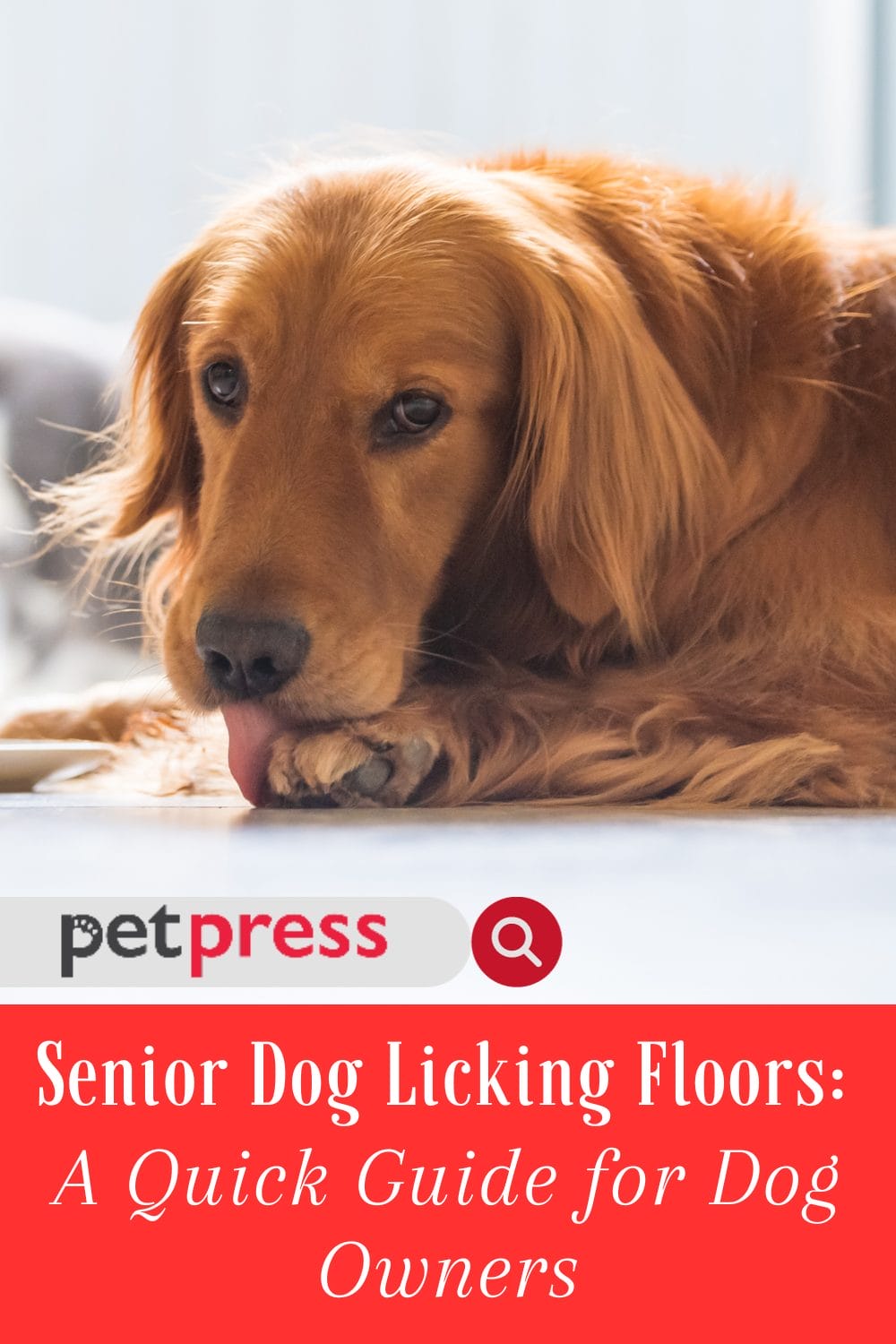
As our loyal companions age, they may develop some peculiar habits. One such behavior that might baffle you is your senior dog licking floors. You may wonder, “Why is my old faithful suddenly behaving this way?“
This comprehensive guide will reveal the hidden motives behind your furry friend’s puzzling behavior and unlock expert tips to tackle it head-on. It’s not just about pristine floors but also about ensuring the health and well-being of your beloved aging companion.
So, let’s delve into the world of senior dogs and their mysterious penchant for floor-licking.
Why do senior dogs lick floors?
Licking is a natural behavior for dogs, especially for pups who use their tongues to explore their environment. However, it might be time to pay attention when your senior dog licks the floor excessively.
A sudden behavior change can indicate underlying issues that need to be addressed. Here are some reasons why your senior dog may be obsessively licking floors:
- Nutritional Deficiencies: As dogs age, they may develop nutrient deficiencies, leading to behaviors like floor-licking. This may indicate a need for dietary changes or supplements.
- Medical Conditions: Certain conditions, such as gastrointestinal or dental issues and liver disease, can cause excessive floor-licking in senior dogs. Consult your veterinarian if the behavior becomes uncontrollable.
- Anxiety or Stress: Dogs can experience anxiety and stress, which may lead to floor-licking. This can be due to changes in their environment, routine, or new people/animals in the household.
- Compulsive Behavior: Due to age-related cognitive decline, some senior dogs may develop compulsive behaviors like licking floors, which can also indicate underlying neurological issues requiring medical attention.
Considering these possible reasons, observing your senior dog’s behavior and consulting with your veterinarian if necessary is important.
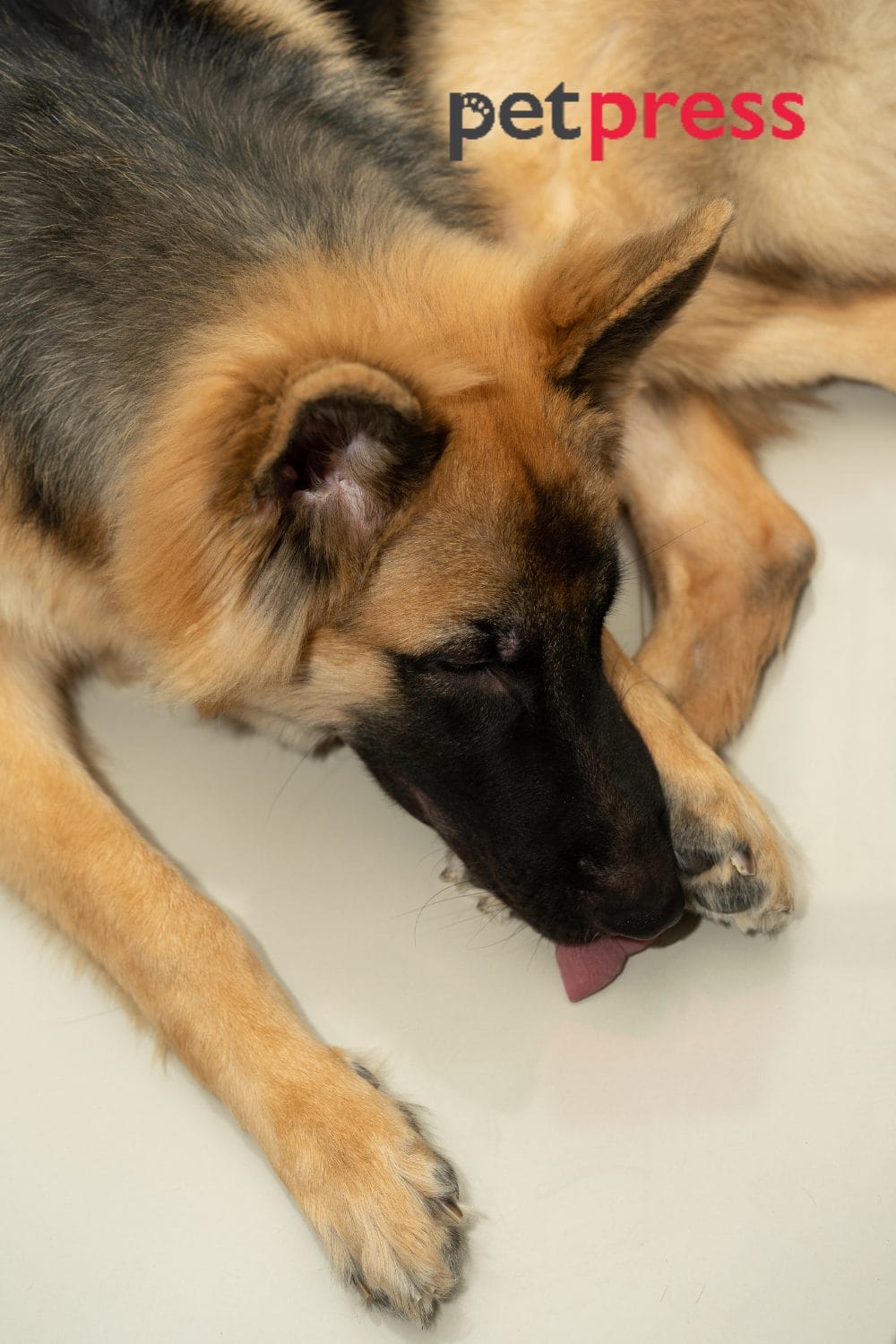
Possible Underlying Health Issues in Senior Dogs Licking Floors
There’s a myriad of potential health concerns that could cause a senior dog to start licking floors excessively. Each dog is unique and might exhibit different symptoms. Here are a few health issues that could be at play:
- Neurological Conditions: Excessive floor licking can be a symptom of a neurological issue. Cognitive dysfunction syndrome, similar to Alzheimer’s in humans, can lead to obsessive behaviors in dogs, floor licking being one of them.
- Gastrointestinal Problems: If your senior dog suffers gastrointestinal discomfort, they might start licking floors. Gastritis, pancreatitis, or inflammatory bowel disease are some of its causes.
- Dental Issues: Excessive floor licking may also be caused by dental problems like gum disease or tooth decay in dogs.
- Liver Disease: If your pet is also vomiting, losing weight, or experiencing seizures – symptoms of liver disease – it’s crucial to consult a vet immediately.
It’s important to consult a veterinarian if your senior dog’s behavior changes. Early diagnosis and treatment can help ensure your aging best friend’s health and comfort.
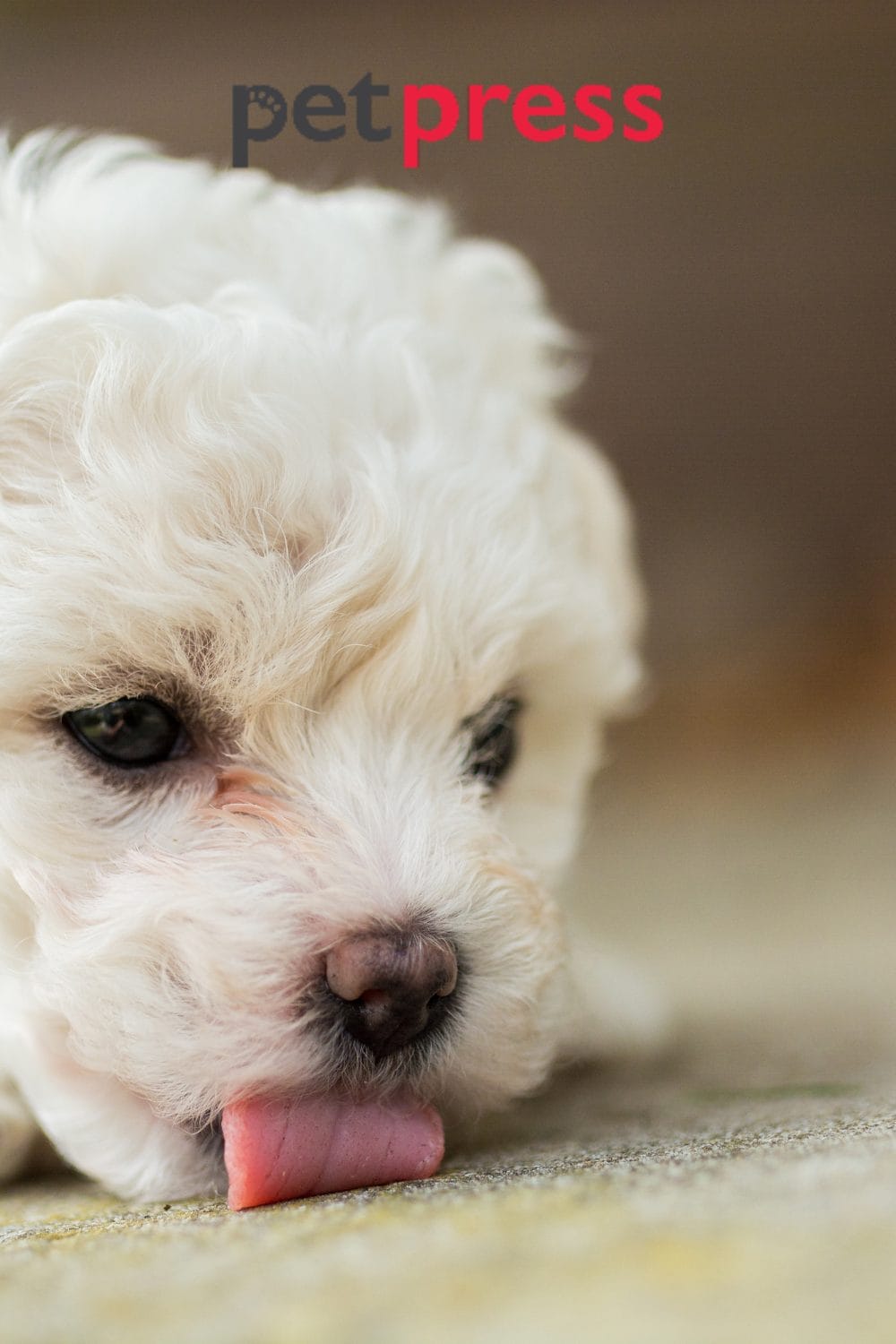
Tips to Address Senior Dog Licking Floors
Now that we understand the possible reasons behind this behavior, let’s look at some tips to address it.
Provide Nutritious Meals
Make sure your elderly dog consumes the appropriate amount of nutrients. If diet supplements are required, speak with your veterinarian. Try incorporating the following into your dog’s diet:
- Chicken and Vegetable Stew
- Fish and brown rice
- Lean Beef and Quinoa
- Turkey and Pumpkin Purée
- Vegetable and Egg Scramble
Each dog has different dietary requirements depending on several factors, such as weight, health, and degree of exercise. Before making any dietary modifications for your dog, consult a veterinarian first.
Incorporate Mental and Physical Stimulation
Keeping your senior dog active and mentally stimulated can curb unwanted behaviors like floor licking. Consider including interactive toys, puzzle games, or daily walks in your dog’s routine.
- Interactive Toys: Toys like puzzle balls or treat-dispensing toys can keep your dog mentally engaged and deter them from obsessive behaviors like floor licking.
- Regular Walks: Regular walks help maintain your senior dog’s physical health and provide them with a change of scenery, which can help alleviate stress and anxiety.
- Training Sessions: Dogs can learn new tricks even in their senior years. Short training sessions using positive reinforcement can stimulate your dog’s mind and increase their sense of purpose.
- Social Interaction: Regularly allow your senior dog to interact with other dogs or humans. Social interaction can be a great source of emotional and mental stimulation for them.
- Introduce New Toys and Scents: Occasionally, introducing new toys or scent-enriched objects can stimulate your dog’s senses, keeping them interested and mentally active.
Remember, each dog is unique, and the type and amount of mental and physical stimulation needed can vary. Always consider your dog’s health condition and comfort when introducing new activities.
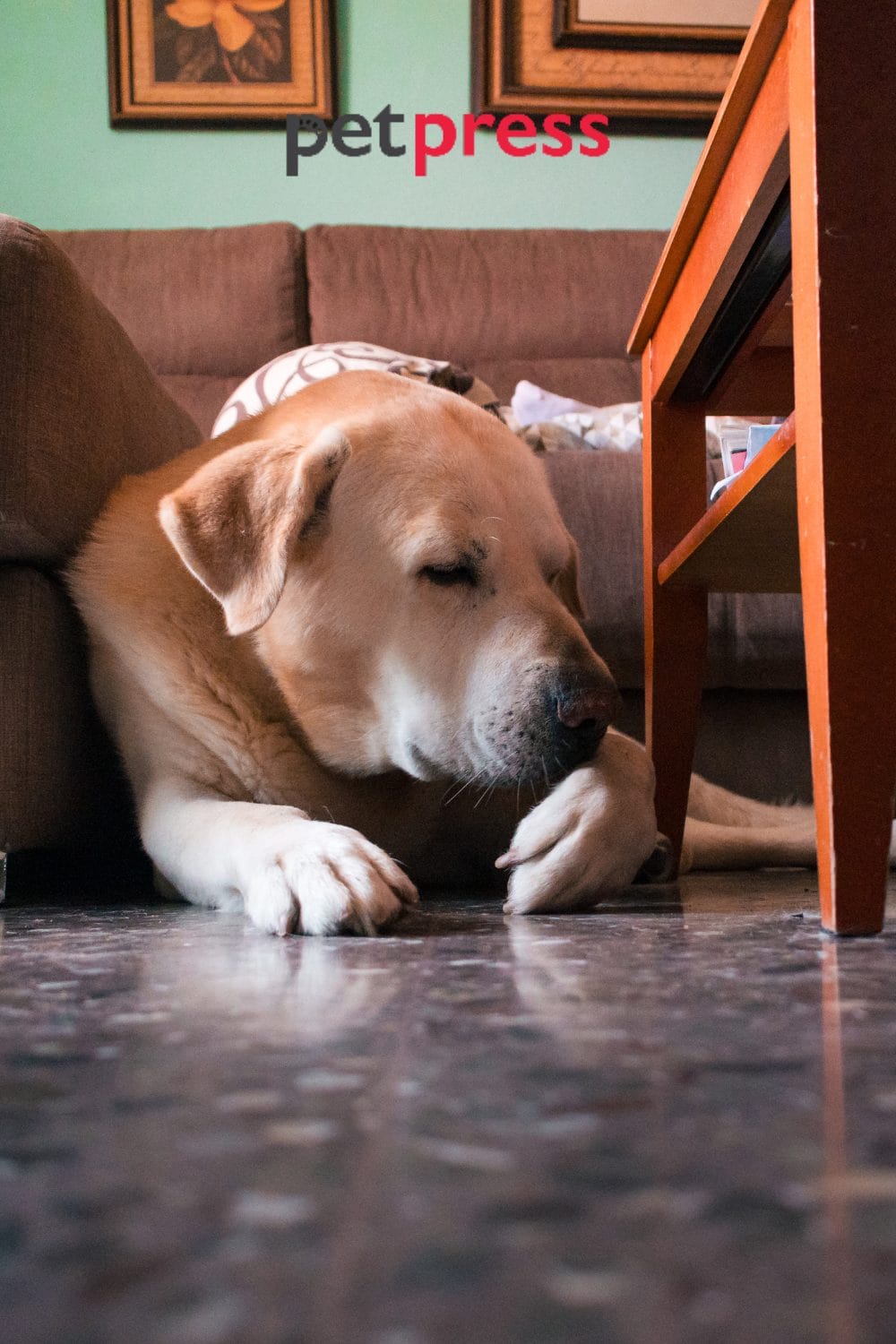
Consult with Your Veterinarian
Regular check-ups with your vet are crucial to detect any underlying health issues early on. If other symptoms accompany your senior dog’s floor-licking behavior, you must consult your vet immediately.
Foster a Calm Environment
Changes in the household or routine can cause dogs’ anxiety, resulting in floor-licking behaviors. Try to maintain a calm and comfortable environment, particularly for senior dogs who might have a harder time adjusting to changes.
Fostering a calm environment for your senior dog involves maintaining consistency and minimizing stressors. Here are some ways to achieve this:
- Maintain a Regular Routine: Dogs thrive on consistency. Establishing and sticking to a daily routine can provide security and lessen anxiety for senior dogs. This should include regular meals, walks, playtimes, and bedtimes.
- Minimize Loud Noises: Sudden, loud noises can be stressful for dogs, especially older people. Try to minimize exposure to such noises as much as possible, and consider using white noise machines or calm music to mask potentially disturbing sounds.
- Provide a Safe Space: Ensure your dog has a quiet, comfortable place to retreat when they feel stressed or anxious. This could be a specific room, a crate, or a bed that they associate with comfort and safety.
- Avoid Major Changes: Major changes, such as moving house or introducing a new pet, can be stressful for senior dogs. If such changes are unavoidable, introduce them gradually and with plenty of positive reinforcement.
- Use Calming Products: Products like pheromone diffusers, calming collars, or anxiety wraps can help to soothe an anxious dog. Always consult your veterinarian before introducing new products to your dog’s routine.
Creating a serene and calming environment for your beloved senior dog is not just a matter of chance; it requires a deep understanding and catering to their needs and preferences. Remember that every dog is unique, and what works for one may not work for another.
The ultimate goal is ensuring your senior dog feels confident, secure, and loved in their environment. By doing so, you can ensure a happy, healthy, and long-lasting companionship with your furry friend.
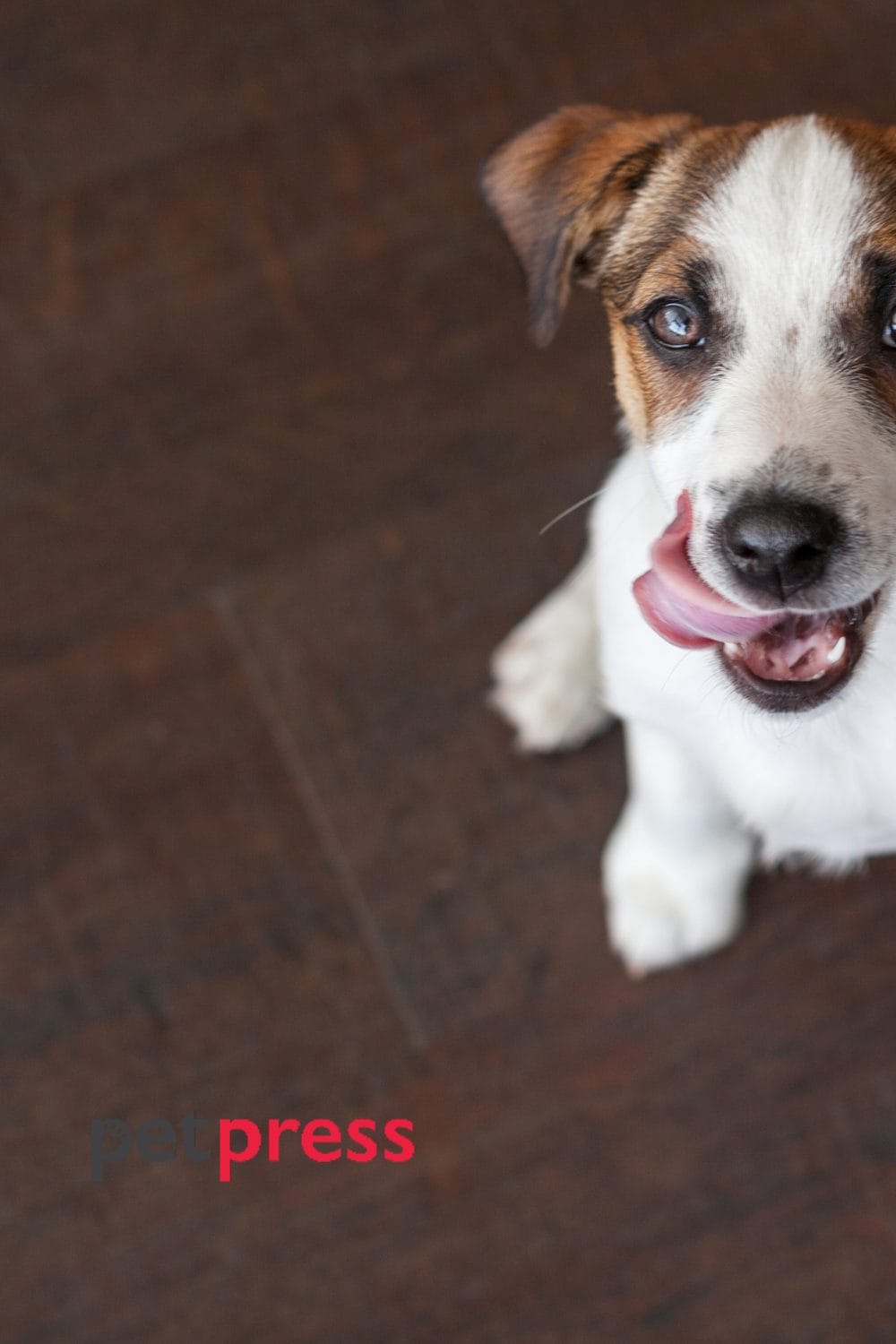
Consulting a Vet: When Is It Time to Seek Professional Help?
If your senior dog’s floor licking persists despite implementing the above tips, it might be time to consult a vet. They can perform a thorough examination and run tests to determine if there are any underlying medical reasons for the behavior. It’s always best to rule out health concerns before assuming it’s a behavioral issue.
Conclusion: Keeping Your Senior Dog Healthy and Happy
As our beloved furry friends age, they might develop peculiar habits like floor licking. While this behavior can stem from numerous reasons, it’s crucial to unravel the underlying cause and take proactive measures to tackle it head-on.
By offering them mental and physical stimulation, carefully monitoring their diet, and seeking guidance from a trusted vet when necessary, we can guarantee that our senior dogs thrive and revel in their golden years, radiating an abundance of health and happiness.
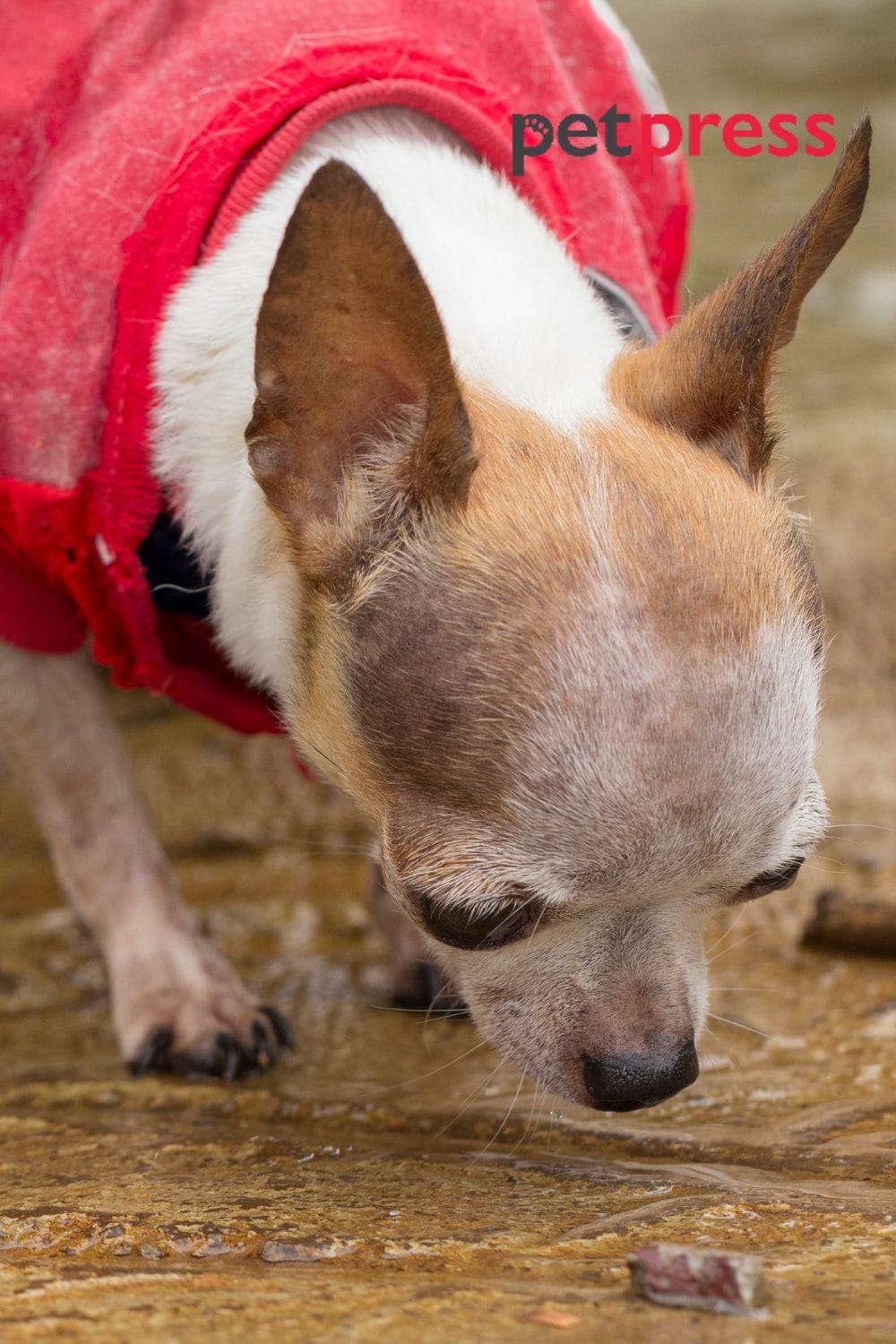
FAQS on Senior Dog Licking Floors
It depends on the frequency and underlying reasons behind the behavior. If your senior dog is excessively licking floors, it’s best to consult a vet.
Yes, it can be a symptom of various health concerns, such as allergies, gastrointestinal problems, or neurological conditions.
You can provide mental and physical stimulation by using deterrents and redirecting their attention with chew toys. However, consult a vet if the behavior persists.
Certain ingredients in their diet can cause digestive issues, leading to floor-licking behavior.
If your dog’s floor licking is excessive and persistent, it’s best to consult a vet for a proper diagnosis.
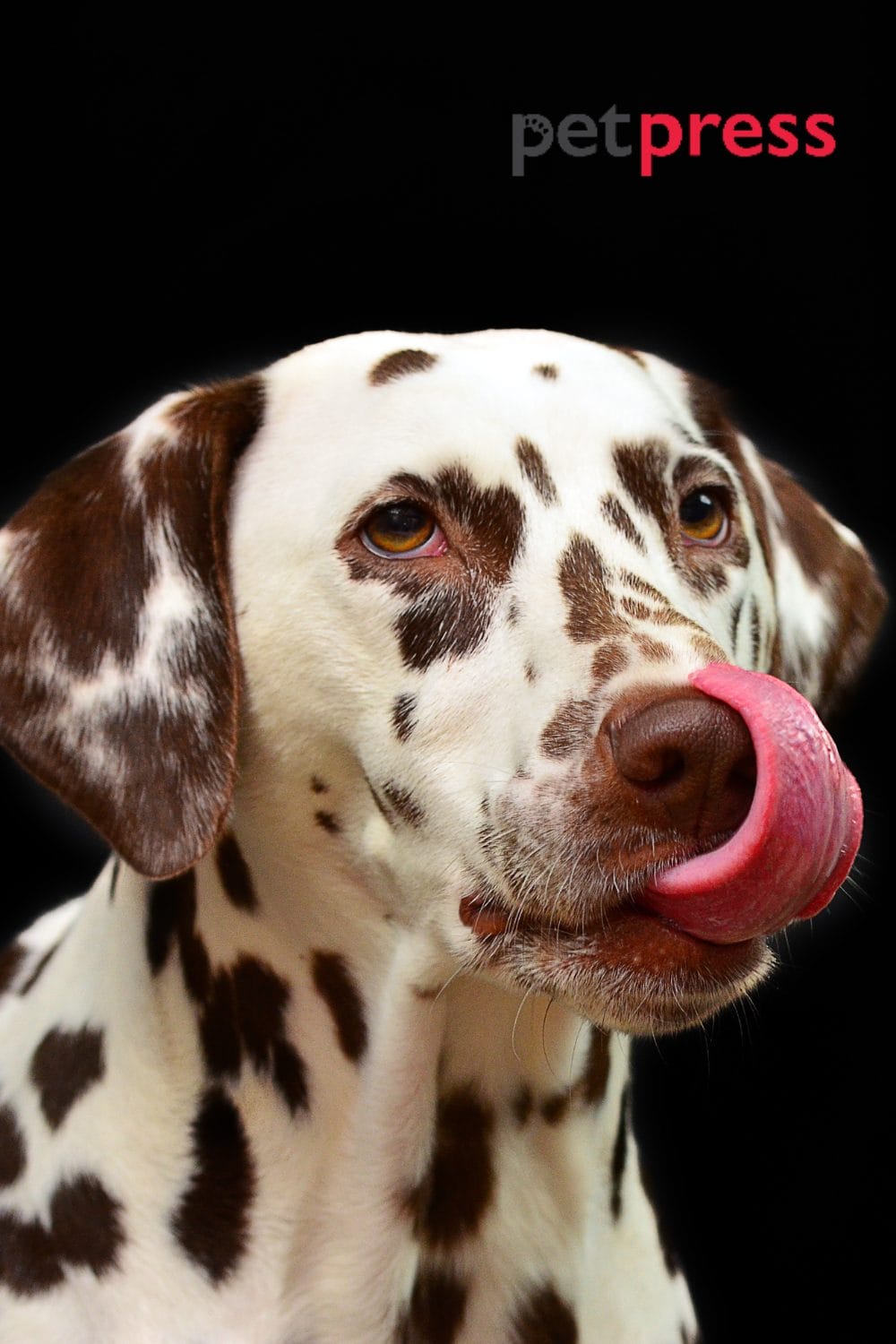
Related Post:
10+ Heartwarming Senior Dog Quotes to Melt Your Heart
- Does Cat Litter Melt Ice? The Complete Guide to Winter Safety - January 30, 2026
- Happy Tail Dogs: Understanding This Common Canine Condition - January 29, 2026
- How Cold Can Outdoor Cats Handle? Feline Winter Safety - January 27, 2026


GIPHY App Key not set. Please check settings